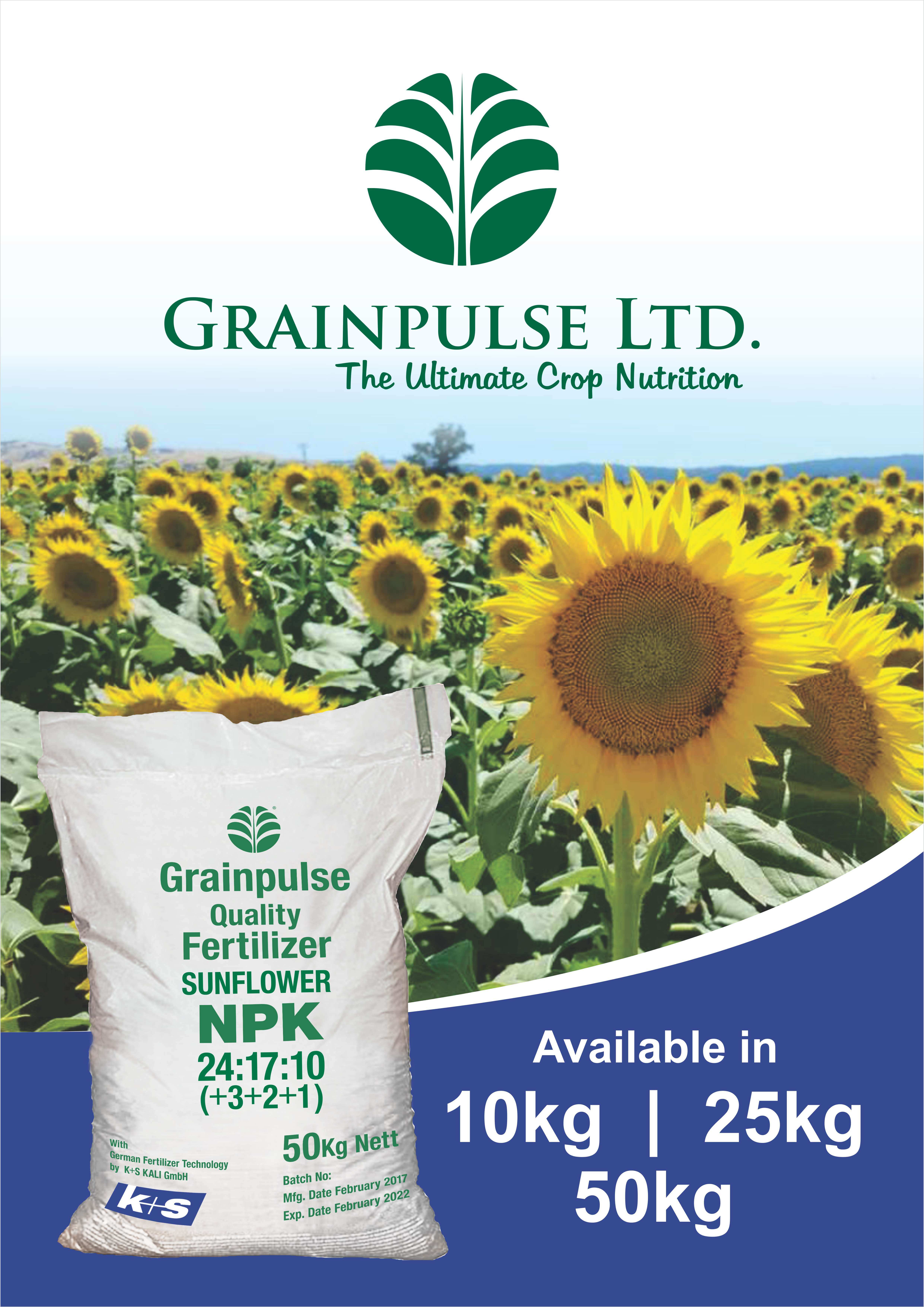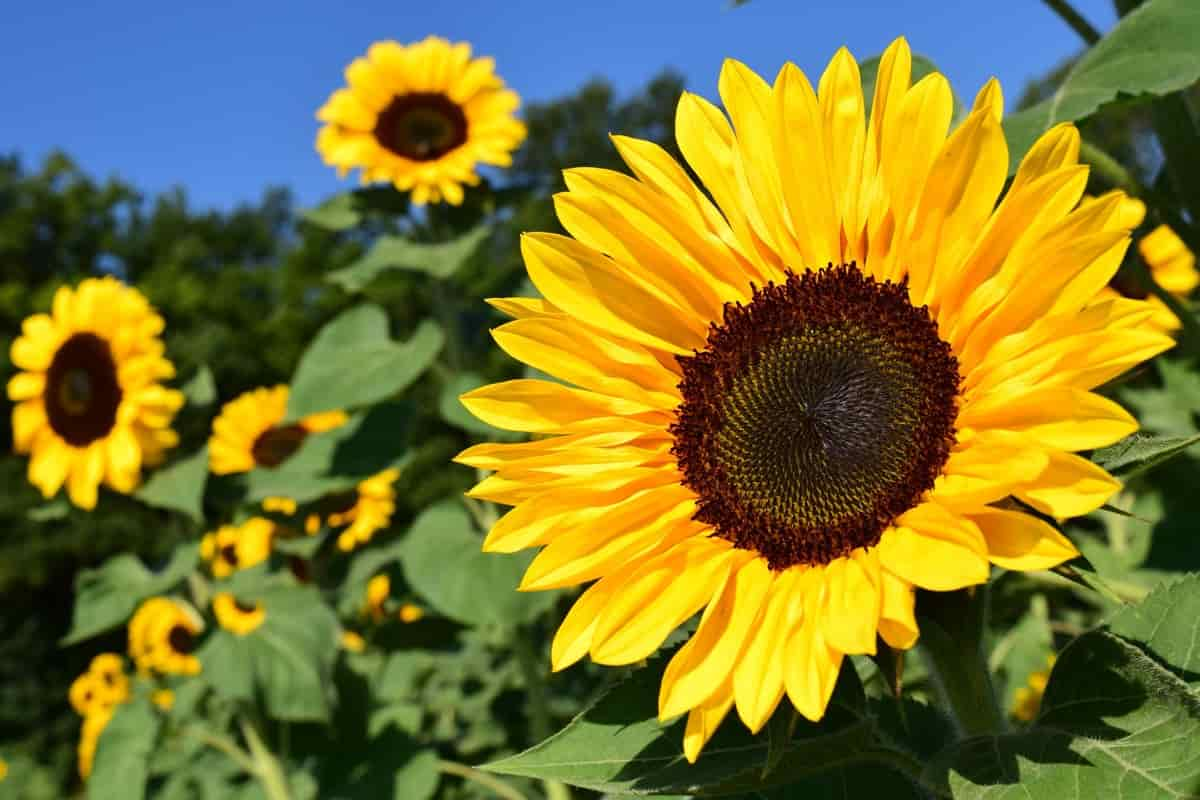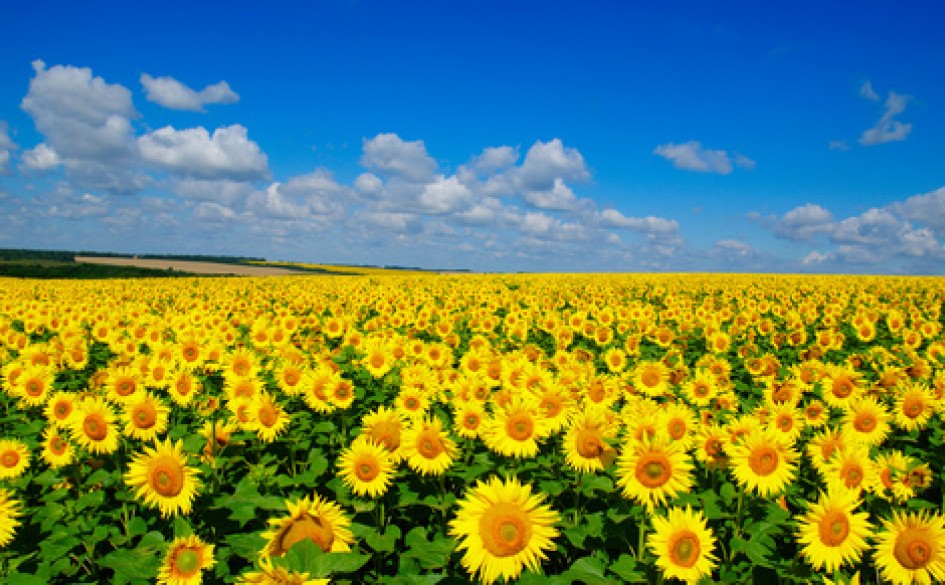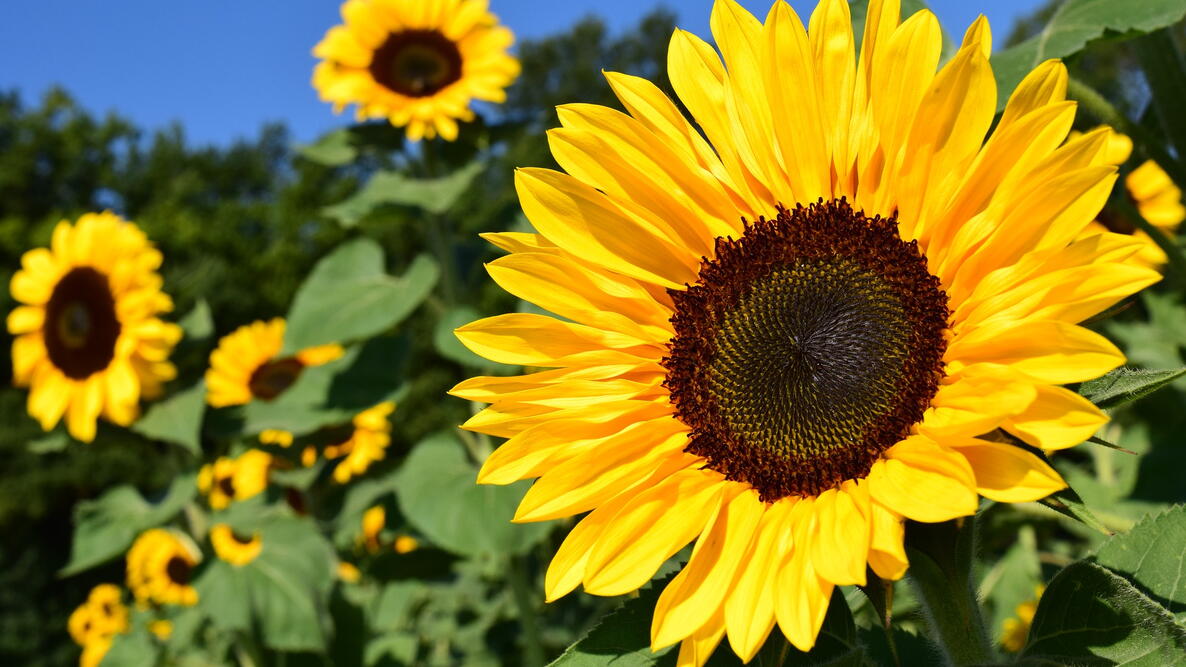The Best Sunflower Fertilizer For Bigger Brighter Blooms
Sunflowers are one of the most popular flowers in the world, and for good reason. They're big, beautiful, and easy to grow. But if you want your sunflowers to reach their full potential, you need to feed them the right fertilizer.
There are a lot of different fertilizers on the market, so it can be tough to know which one is right for your sunflowers. In this blog post, I'll share some tips on choosing the best sunflower fertilizer for bigger brighter blooms.
What to Look for in a Sunflower Fertilizer
When choosing a sunflower fertilizer, there are a few things you need to keep in mind:
- The type of sunflower you're growing. Different types of sunflowers have different nutrient requirements. For example, giant sunflowers need more nitrogen than dwarf sunflowers.
- The stage of growth your sunflowers are in. Young sunflowers need a different fertilizer than mature sunflowers.
- The soil quality in your area. If your soil is already rich in nutrients, you won't need to fertilize as often.
Some of the best sunflower fertilizers include:
- Fish emulsion: This natural fertilizer is rich in nitrogen and phosphorus, which are essential for sunflower growth.
- Blood meal: This high-nitrogen fertilizer is a good choice for young sunflowers.
- Bone meal: This slow-release fertilizer is a good choice for mature sunflowers.
- Compost: Compost is a great way to add nutrients to your soil and improve drainage.
How to Fertilize Sunflowers
The best time to fertilize sunflowers is when they're about 6 inches tall. You can apply the fertilizer to the soil around the base of the plant, or you can mix it into the soil before planting.
Once your sunflowers start to bloom, you can fertilize them again every few weeks. Be sure to follow the instructions on the fertilizer label to avoid over-fertilizing.
Conclusion
By following these tips, you can choose the best sunflower fertilizer for your plants and help them reach their full potential. With a little care and attention, you'll be enjoying big, bright sunflowers all summer long.
Visit Home Gardening for more information about sunflower fertilizer.
FAQ of sunflower fertilizer
- What type of fertilizer do I use for sunflowers?
Sunflowers are heavy feeders, so they require a fertilizer that is high in nitrogen. A balanced fertilizer, such as 10-10-10, will also work well. You can apply the fertilizer at the time of planting or side-dress it once the plants are established.
- How often should I fertilize sunflowers?
You should fertilize sunflowers every 4-6 weeks during the growing season. If you are using a slow-release fertilizer, you may only need to fertilize once or twice during the season.
- What are the signs of fertilizing sunflowers too much?
If you fertilize sunflowers too much, the leaves may turn yellow or brown. The plants may also grow too tall and spindly, and they may not produce as many flowers.
- What are the signs of fertilizing sunflowers too little?
If you fertilize sunflowers too little, the plants may be stunted and they may not produce as many flowers. The leaves may also be pale green or yellow.
- What are some organic fertilizers that I can use for sunflowers?
Some organic fertilizers that you can use for sunflowers include:
- Compost: Compost is a great way to add nutrients to the soil and improve drainage.
- Fish emulsion: Fish emulsion is a liquid fertilizer that is high in nitrogen.
- Blood meal: Blood meal is a high-nitrogen fertilizer that is made from dried blood.
- Bone meal: Bone meal is a high-phosphorus fertilizer that is made from ground bones.
Image of sunflower fertilizer
- A bag of sunflower fertilizer with the words "Sunflower Fertilizer" printed on the front.

- A close-up of the nutrients in sunflower fertilizer, including nitrogen, phosphorus, and potassium.

- A field of sunflowers that have been fertilized. The sunflowers are large and healthy.

- A gardener applying sunflower fertilizer to a sunflower plant.

- A chart showing the recommended amount of sunflower fertilizer to use for different stages of growth.

- A soil test kit that can be used to determine the nutrient levels in your soil.

- A liquid sunflower fertilizer that can be applied to the soil or leaves of sunflower plants.

- A slow-release sunflower fertilizer that releases nutrients over time.

- A granular sunflower fertilizer that can be spread evenly over the soil.

- A foliar sunflower fertilizer that can be sprayed on the leaves of sunflower plants.

Post a Comment for "The Best Sunflower Fertilizer For Bigger Brighter Blooms"